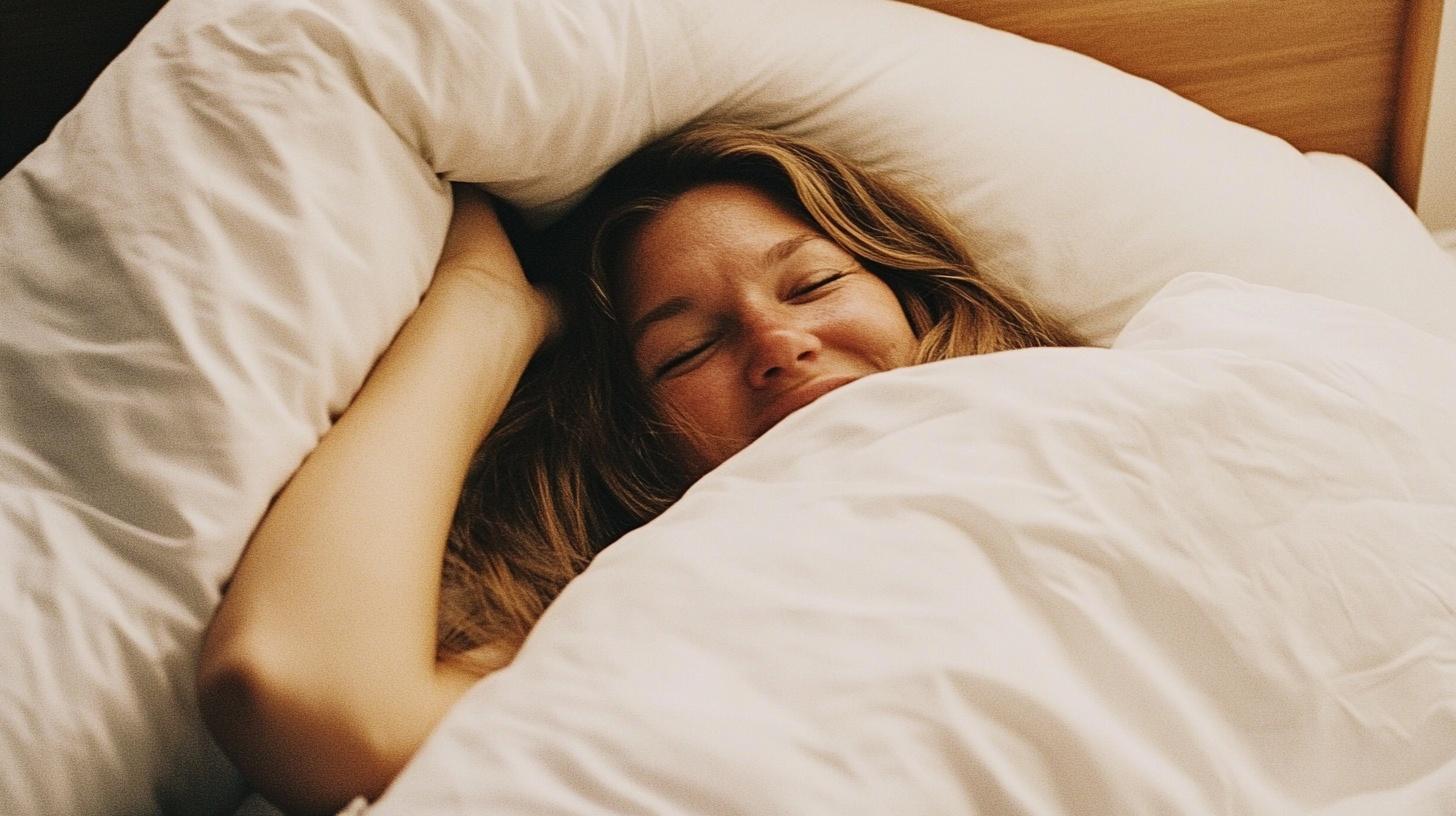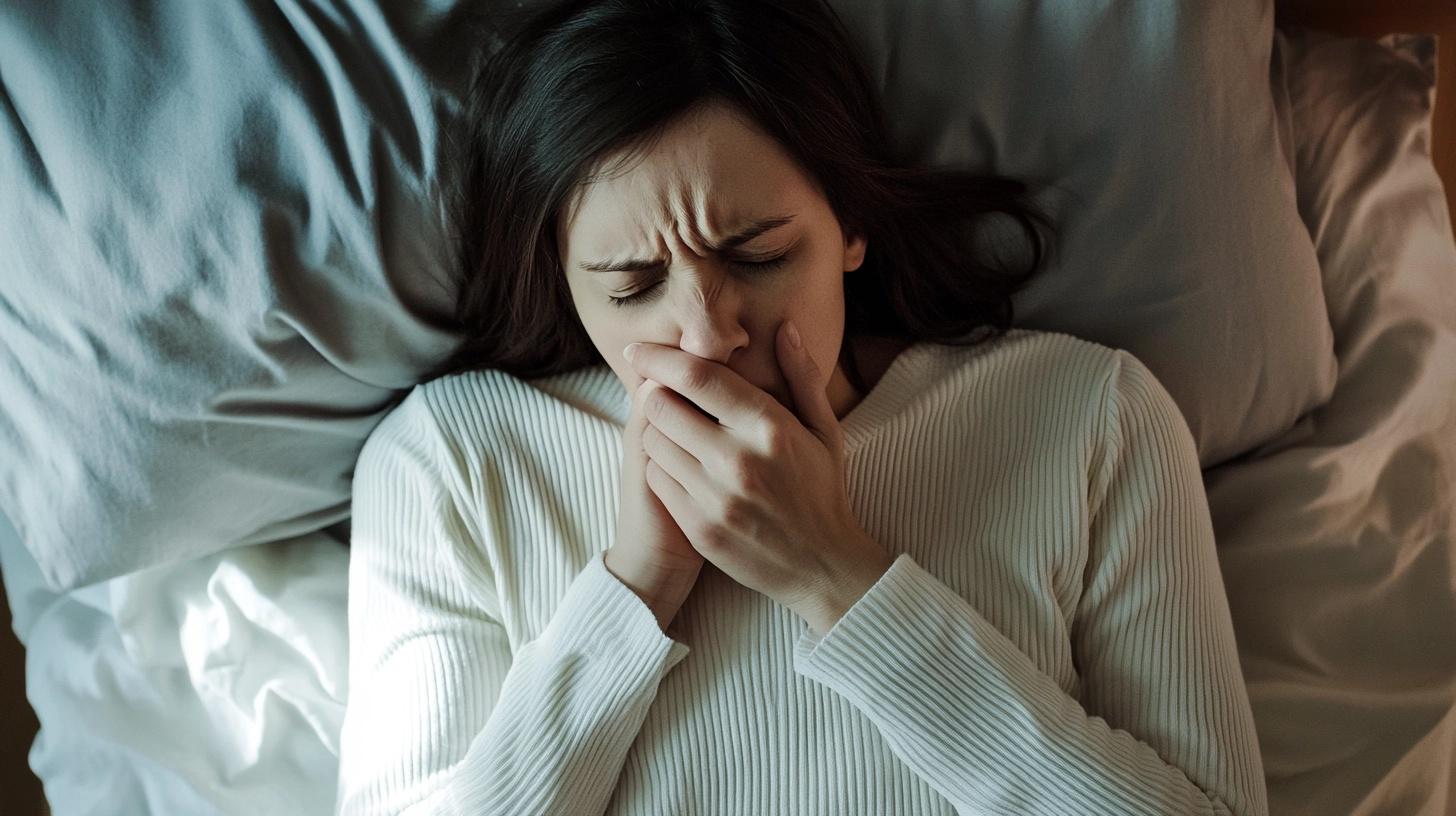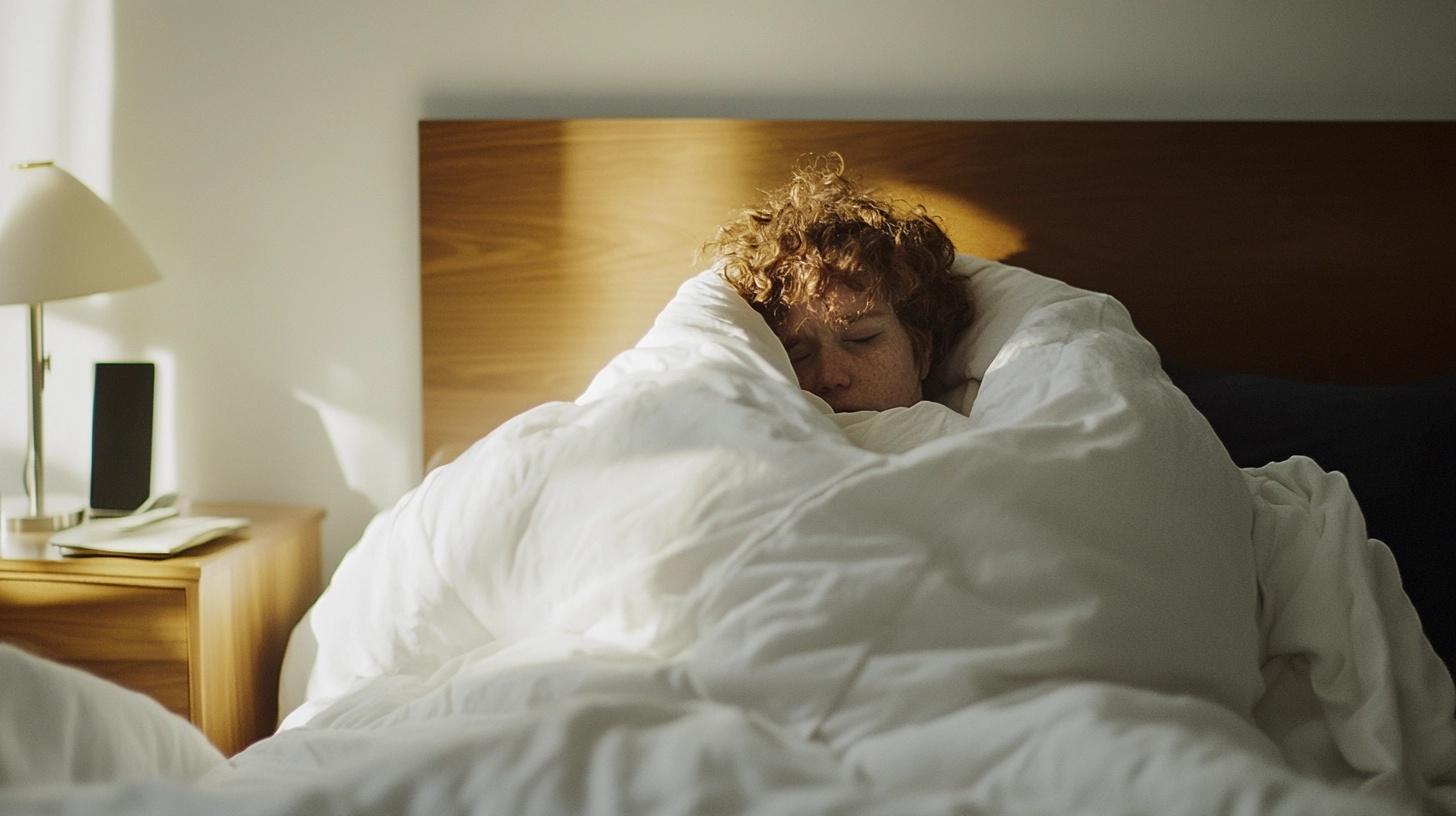Are You Coughing at Night? Make Sure to Keep Track of It to Stay Healthy
Published

Coughing can be a symptom of many things and can disrupt your sleep and overall quality of life. Sleep Cycle’s new Coughing feature tracks and presents nightly coughs to help you understand your coughing patterns. In combination with our groundbreaking ‘parent feature’, Cough Radar, you now have a unique opportunity to compare your coughing to that of the population in your area. This, we believe, helps you make well-informed decisions on how to go on with your lives to stay healthy.
Try Sleep Cycle and Coughing today!
- How It Works
- Make Informed Decisions Knowing your Coughing Pattern
- The 3 Levels of Coughs and What They Indicate
- Who Should Keep Track of Their Nightly Coughs?
- Why Do People Cough at Night?
- Explore Sleep Cycle’s Coughing Today!
How It Works
The Coughing feature in Sleep Cycle tracks how many times you cough each hour and compares it to data from the past year in your area. It collects this data using sound analysis and machine learning to show you how often you cough. It also highlights if there are changes to your coughing pattern. While testing, these insights were quite accurate, showing a cough increase one or two days before the user getting sick.
Make Informed Decisions Knowing your Coughing Pattern
Knowing when coughs are on the rise from your sleep tracking or in your community allows you to take better care of yourself – no matter the cause of the cough.
- Stay one step ahead if you suspect an incoming flu or cold, following the CDC-recommended guidelines accordingly.
- Know when it’s time to prepare for allergy season if you suffer from allergies.
- Get a hint that perhaps it’s time to inspect your sleep environment for potential irritants if you feel fine but your coughing levels are elevated at night.
- Collect data to share with your medical provider.
The 3 Levels of Coughs and What They Indicate
Your nightly cough average is classified into 3 levels against the area you are in; normal, elevated and high. These levels are defined based on the peaks from the past year and will differ depending on location.
Normal Cough Level
Your cough frequency is considered normal based on data from your area over the past year. A study with 79 healthy adults found coughing can vary widely in 24 hours – from 0 to 136 times. Men tend to cough more than women, and coughing occurs more during the day versus at night.
Elevated Cough Level
Your cough level is higher than normal, ranking in the top 25% based on data from the past year. Things like getting over a cold, having asthma or allergies, smoking, or being around dusty places can all make you cough more. Knowing what’s going on can help you handle your coughing better.
High Cough Level
You’re among the top 10% for coughing compared to last year’s data. Think about what might be causing it, from temporary things to something deeper. Keep in mind, coughs can happen for no clear reason too. Trust your instincts and get help if you’re worried. If your cough doesn’t go away after 8 weeks (4 weeks for kids), talking to your family doctor is a good idea.
Who Should Keep Track of Their Nightly Coughs?
Coughing at night has a significant impact on your sleep quality and your overall well-being. Understanding your coughing pattern is useful for anyone curious about or interested in improving their sleep and health.
Understanding why you cough at night can give you control over your respiratory health and improve your sleep. Keeping track of your coughing habits, much like monitoring your sleep patterns, lets you spot trends and know when to take action, whether that means changing your lifestyle or getting medical advice. It also helps you see if nighttime coughing is affecting how well you sleep.
Why Do People Cough at Night?
If you find yourself coughing uncontrollably at night, there’s often a perfectly good explanation.
Contrary to what we might think, sleep suppresses coughing. It’s when we’re awake that we cough the most. That’s why you might notice more coughing when you’re trying to drift off to sleep at the beginning of the night, which can make falling asleep tricky. Even though we often wake up briefly during the night, we usually go back to sleep without even realizing it. However, if we happen to cough during these moments, it might seem like we’re coughing in our sleep.
Gravity Worsens Coughing at Night
Nighttime coughing is often worsened by gravity, as lying down can cause mucus from a post-nasal drip to accumulate in the throat. Lying down also allows stomach acid to flow into the airways, triggering coughing, for people experiencing acid reflux.
Sleep in a slightly elevated position and use a pillow for support. This adjustment helps prevent the buildup of mucus in the throat and the flow of stomach acid and can alleviate coughing symptoms. In addition, avoid eating close to bedtime and avoid reflux-triggering foods like chocolate and coffee. And remember plenty of fluids to help thin the mucus.
Environmental Cough Triggers
Being mindful of your environment can help improve your sleep quality; factors such as mold spores, dust, and pet dander can add to nighttime coughing. Moreover, dry air can irritate your nose and throat. Use a humidifier to add moisture to the air and make breathing easier. Just remember to keep your humidifier clean – and air out!
Underlying Causes for Nighttime Coughing
Nighttime coughing can serve as an early indicator of community health risks and, in the worst cases, signal serious respiratory issues like asthma or lung cancer.
Asthma and Bronchitis – Asthma patients, in particular, may experience higher nighttime cough frequencies due to bronchial hyperresponsiveness. Monitoring nighttime coughing can offer valuable insights into the effectiveness of asthma treatments, aiding in early predictions of therapeutic effects.
Outbreaks – Analyzing data from 100,000 US users in 2021, we found a crucial link between increased coughing and Omicron outbreaks before official statistics on confirmed cases. This highlights the potential for tools like the Sleep Cycle app to detect health risks early on, such as COVID-19 outbreaks.
Explore Sleep Cycle’s Coughing Today!
If you haven’t already, download the Sleep Cycle app today to explore the Coughing feature to monitor your respiratory sleep health and stay one step ahead with informed decisions. Taking care of yourself – and your community – has never been easier.
Try Sleep Cycle and Coughing today!
Medical Disclaimer
The contents of this blog post is of general character and intended for informational purposes only. The information is not adapted after individual sleep quality or health status. It does not constitute and is not intended to constitute medical advice, diagnosis, or treatment, and should never replace any advice given by a physician or other qualified healthcare provider. Contact your healthcare provider if you have specific medical needs or require medical advice.
{
“@context”: “https://schema.org”,
“@type”: “MedicalWebPage”,
“reviewedBy”: {
“@type”: “Person”,
“name”: “Mike Gradisar”,
“jobTitle”: “Head of Sleep Science”,
“affiliation”: {
“@type”: “Organization”,
“name”: “Sleep Cycle”
},
“url”: “https://www.linkedin.com/in/michael-gradisar-ba2184b6”
},
“mainEntityOfPage”: {
“@type”: “Article”,
“headline”: “Are you coughing at night? Make sure to keep track of it to stay healthy”,
“abstract”: “Are you coughing at night? Keep track of nightly coughing and compare to cough levels in your area with this new feature from Sleep Cycle! Understand how coughing affects your sleep with data and insights.”,
“datePublished”: “2024-04-26”,
“image”: “https://www.sleepcycle.com/wp-content/uploads/2024/04/coughing.jpg”,
“author”: {
“@type”: “Person”,
“name”: “Susanne Lindberg Mikkelsen”,
“jobTitle”: “Editorial Content Writer”,
“affiliation”: {
“@type”: “Organization”,
“name”: “Sleep Cycle”
},
“url”: “https://dk.linkedin.com/in/susanne-lindberg-mikkelsen”
},
“publisher”: {
“@type”: “Organization”,
“name”: “Sleep Cycle”,
“logo”: {
“@type”: “ImageObject”,
“url”: “https://www.sleepcycle.com/wp-content/uploads/2021/05/sleepcycle-logo.png”
}
}
}
}







